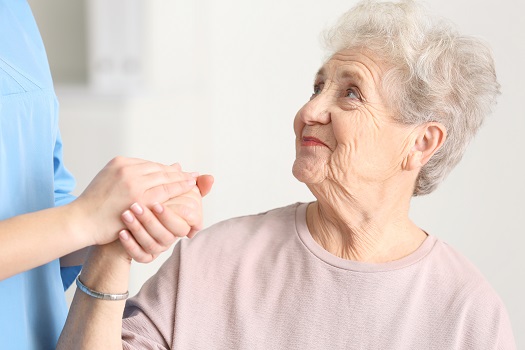Many people associate the term “fitness” with physical exercise. It conjures up images of heart-pumping aerobics classes and muscle-building weight machines. While physical exercise is crucial for people of all ages, seniors should also be concerned about their mental fitness. Ahead, learn more about the steps seniors can take to stay mentally fit as they grow older.
What Is Mental Fitness?
Mental fitness can be broadly defined as cognitive wellbeing. The term can describe a range of cognitive abilities, including verbal fluidity, processing speed, recall, and visual/spatial perception. For many seniors, some or all of these abilities naturally decrease with age. However, a decrease in cognitive power isn’t inevitable, and if seniors take positive action, they may be able to maintain their mental fitness levels.
What Types of Memory Loss Do Seniors Naturally Experience?
Age-related memory loss is different from the cognitive decline caused by Alzheimer’s and other types of dementia. While dementia is a progressive disorder that leads to changes in memory and processing skills, seniors who don’t have dementia may still experience memory loss. Research suggests that verbal skills often progress until the age of 65. At this point, seniors may experience a slight decrease in the ability to remember new words or call to mind old ones. Processing speed slows down before verbal abilities start to decrease. Processing is the ability that governs most mental tasks, allowing people to comprehend and react to visual, auditory, and spatial information. To boost mental fitness on a long-term basis, seniors need to stay actively engaged and do activities that utilize their processing power and verbal abilities.
Memory loss and other mental challenges are common in the golden years, but seniors don’t have to manage them alone. If your senior loved one needs around-the-clock assistance at home, the Anchorage, AK, live-in care professionals at Home Care Assistance are here to help. Our proprietary Balanced Care Method was designed to promote longevity by encouraging seniors to focus on healthy eating, regular exercise, mental engagement, and other important lifestyle factors.
What Are the Most Beneficial Modes of Cognitive Engagement?
There are many activities that can keep seniors mentally engaged. Attending a social event at the local senior center gives their conversational skills a workout. Playing a game of solitaire utilizes their processing powers. Learning how to speak a new language engages the mind on a myriad of levels simultaneously. However, productive engagement is one of the best ways to keep the brain healthy. Productive engagement activities use multiple modes of memory and processing power. To knit a complicated sweater, seniors might use their long-term memory to remember familiar stitches, their working memory to remember unique stitch patterns, and their cognitive flexibility to switch between one stitch and the next. These differ from receptive engagement activities, such as social interactions, which don’t require as much cognitive exertion.
Professional caregivers with training and expertise in methods of cognitive stimulation can be a wonderful resource for building mental fitness in seniors. Not every senior has the same care needs, which means they don’t all need the same type of senior care. Anchorage families can rely on Home Care Assistance to provide individualized care plans to meet your elderly loved one’s unique care needs. Our holistic Balanced Care Method was designed to help seniors focus on healthy lifestyle habits such as eating nutritious foods, exercising regularly, and maintaining strong social ties, and our Cognitive Therapeutics Method offers mentally stimulating activities that can stave off cognitive decline and delay the onset of dementia.
What Activities Challenge the Brain?
Seniors should approach mental fitness the same way they approach physical fitness. When people decide they want to get in good shape, they start by choosing a type of exercise that suits their current fitness level and lifestyle, and then they slowly add it into their weekly schedule until going to the gym three times a week becomes a habit. Increasing mental fitness isn’t too different. Seniors should choose a mentally stimulating activity that challenges and interests them. A 65-year-old woman who’s always dreamed of visiting Paris might choose to learn French, or a 70-year-old man who likes to work with his hands might decide to take a class in woodworking. Seniors who make a habit of their newly adopted mentally stimulating activities can boost their short-term, long-term, and working memory and enhance their mental processing powers.
Mental fitness is only one of many components that contribute to robust health and overall wellbeing in seniors, and a professional caregiver can be a fantastic source of support for mental health and fitness. If you’re the primary caregiver for a senior family member and are looking for professional elder care, Anchorage Home Care Assistance should be your top choice. Our dedicated and compassionate caregivers are committed to helping older adults manage their health and enjoy a higher quality of life in the golden years. If your loved one needs professional care, Home Care Assistance is here to help. Call one of our Care Managers today at (907) 770-0907.
